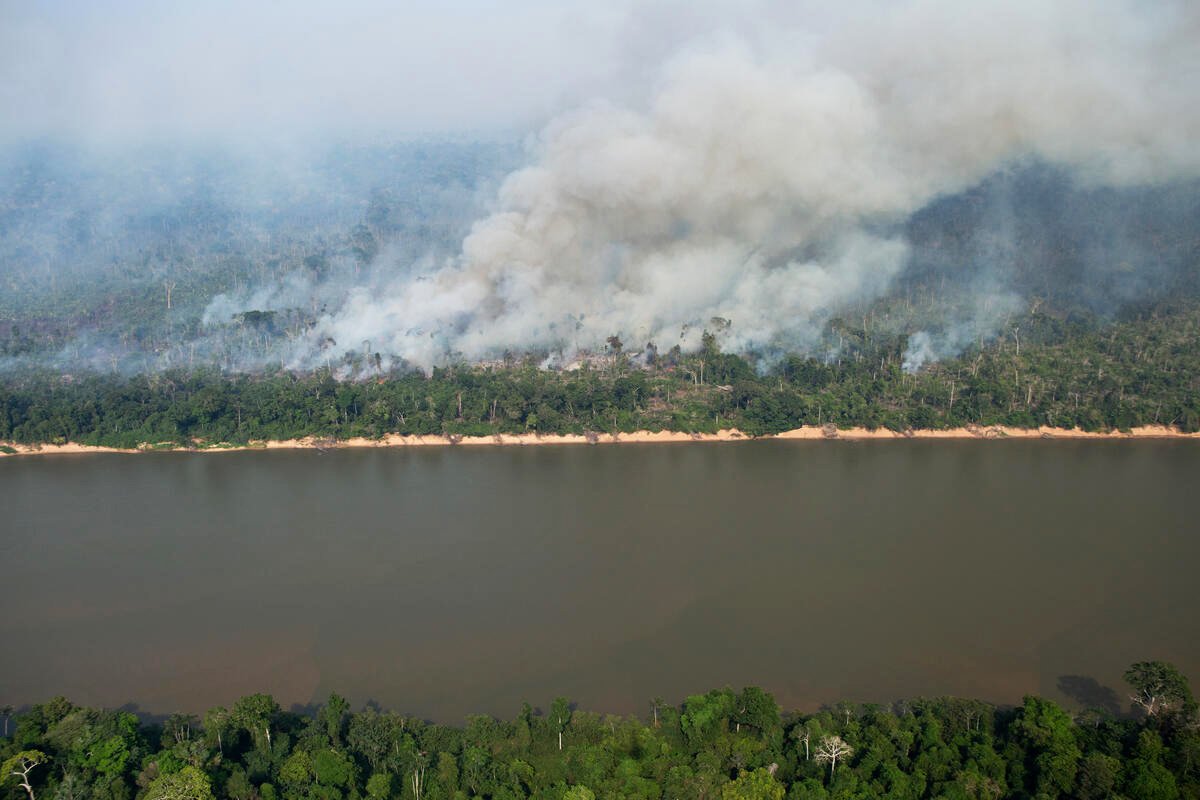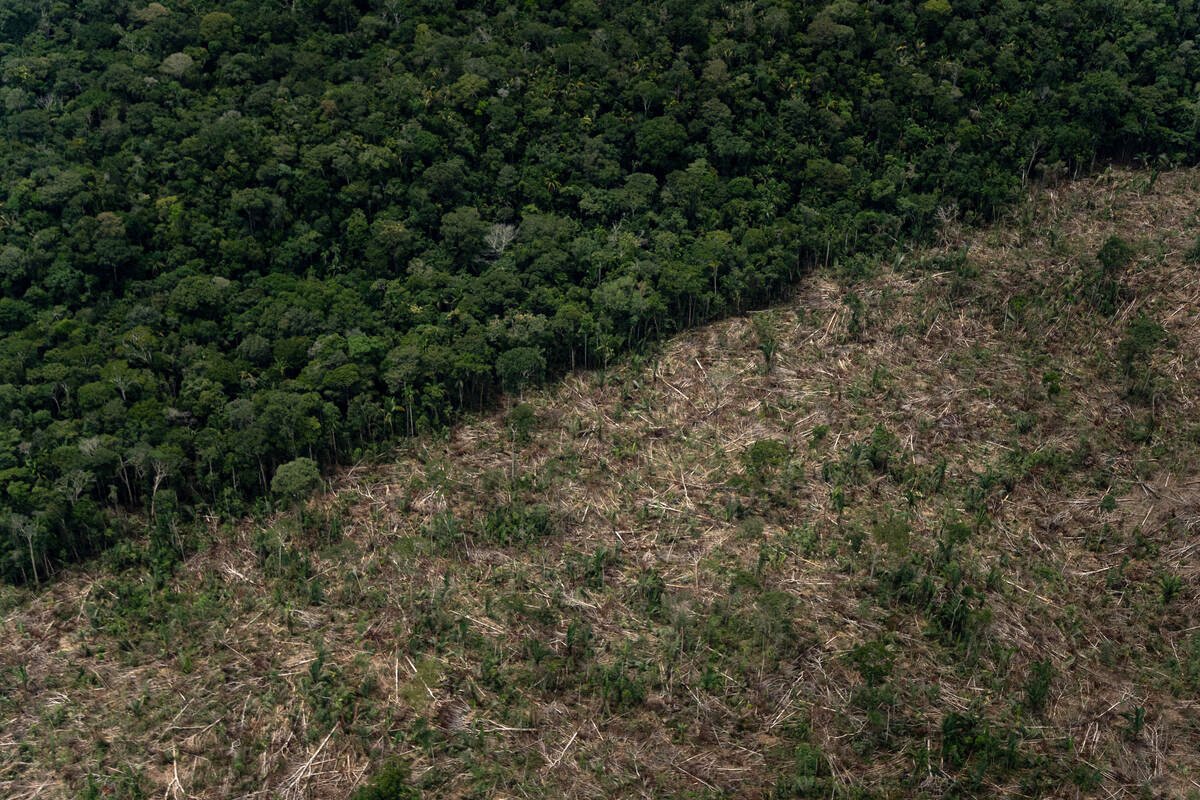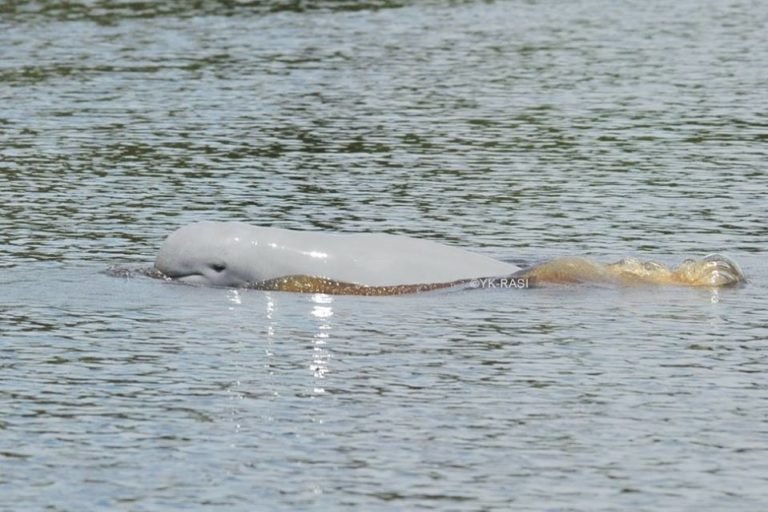- Brazil could fail greenhouse gas emissions targets set in the Paris Climate Agreement by 137% in 2030 if President Jair Bolsonaro’s environmental policies continue, according to a new study.
- Up to 23% of the Brazilian Amazon could be deforested, turning much of the region into a savanna if the current trend isn’t reversed.
- With Luiz Inácio Lula da Silva, heading for a runoff against Bolsonaro in late October, specialists say the results could represent the beginning of a new era for environmental policy, but it would take an intense mobilization of civil society for a significant change.
In a civilized world, commitments should be kept. Sometimes it is impossible due to uncontrollable factors, such as a pandemic or an extreme event. But when it comes to Brazil and the reduction of greenhouse gas emissions, Jair Bolsonaro’s administration showed that disrespecting international commitments is an intentional and structured government policy.
Deforestation in the Amazon has increased by 56% since Bolsonaro took office as president, and a new study shows that Brazil could fail the targets for greenhouse gas emissions set in the Paris Climate Agreement by 137% if his environmental policies continue for the next several years. The report also projects that the Amazon will reach its tipping point within this decade, beyond which the biome would begin to transition from a lush tropical forest into a savanna.
The study, titled “Continuity Scenario,” was commissioned by Instituto Clima e Sociedade (Climate and Society Institute, iCS), a nonprofit that supports climate initiatives, and Talanoa Institute, a climate policy think tank. Carried out by researchers at the Federal University of Rio de Janeiro (UFRJ), the analysis shows that Brazil will fail to fulfill its commitment to the international community for the first time if it doesn’t reverse today’s environmental policy. If the current trend of increasing deforestation rates continues, researchers say it would have a negative economic impact that could result in more unemployment, inequality and a worse quality of life for the Brazilian population.
In September 2016, Brazil ratified the Paris Agreement, committing to reduce emissions by 1.2 billion metric tons of CO2 equivalent by 2030 (a reduction of 43% based on 2005 emissions) and to submit its Nationally Determined Contributions (NDC) updated every five years to the United Nations Framework Convention on Climate Change (UNFCCC). NDCs are national plans and strategies made by countries to maintain global temperature rise below 2 degrees Celsius above pre-industrial levels while aiming for 1.5 degrees Celsius to avoid the worst impacts of climate change. In its latest updated NDC, submitted in April, Brazil confirmed its goal of reducing 37% of its greenhouse gases by 2025 and 50% by 2030, based on emissions from 2005.
Unlike other major polluters such as the United States and China, where most emissions come from burning fossil fuels for electricity, heat and transportation, one of the primary drivers of greenhouse gas emissions in Brazil is due to deforestation. Major losses in forest cover are caused by a national and global demand for timber, beef, soy, cotton, corn and other agribusiness commodities, and to a smaller extent, slash-and-burn subsistence agriculture.
Since Bolsonaro took office at the beginning of 2019, his administration has dismantled the federal environmental protection agency, IBAMA, and pledged to open up the Amazon to agriculture and mining. Since then, the deforestation rate per year in the world’s largest rainforest has almost doubled. Data from the nonprofit Climate Observatory’s Greenhouse Gas Emission Estimation System (SEEG) released last year showed that in 2020, while worldwide emissions fell 7% as a consequence of COVID-19 stay-at-home measures, in Brazil they grew by 9.5%, and deforestation was the key driver.

“The current administration’s environmental policy is a catastrophe in terms of the use of natural resources, greenhouse gas emissions and international commitments,” Paulo Artaxo, a member of the Intergovernmental Panel on Climate Change (IPCC), told Mongabay by phone. “Bolsonaro’s government is against a global trend to reduce polluting gases. The worst use of a natural resource as rich as the Amazon rainforest is to burn it down and turn it into a greenhouse gas,” he said.
In the study, researchers used mathematical models to simulate two hypothetical scenarios. For “Continuity Scenario 1,” they considered another four years with the same environmental policy (which is the length of mandates in Brazil), with deforestation growth following the rhythm of the 2018-2021 period in the Amazon, Cerrado and Atlantic Forest, stabilizing from 2026 onward. In that projection, Brazil would reach 2030, emitting 2.4 billion metric tons of CO2 equivalent, failing the emission target by 91%.
For “Continuity Scenario 2,” researchers considered another eight years with Bolsonaro’s environmental policy. By 2030, the country would be emitting 3.0 billion metric tons of CO2 equivalent, and the target would be missed by 137%.
“Brazil needs a radical change to be able to return to a transition route that will lead to a low carbon economy,” Natalie Unterstell, president of the Talanoa Institute, told Mongabay by phone.

Irreversible destruction
Emilio Lèbre La Rovere, a UFRJ professor and one of the study’s authors, said that the analysis was a warning about how close to a tipping point the current environmental policy is leading the Amazon. According to La Rovere, the Amazon rainforest has already lost around 17% of its cover, and the “point of no return” will be at about 20-25% forest cover loss.
In Continuity Scenario 1, the forest would reach 2030 with a level of destruction of 22.5%, according to La Rovere. In Continuity Scenario 2, more than 23% of the forest would be lost, he added.
The forest would reach irreversible destruction in less than a decade in both scenarios. For Unterstell, this would impact the whole world.
“What could happen is a total ecological transformation of the Amazon, with effects far beyond South America itself,” she said. “We are talking about systemic effects on the global regulation of climate and rainfall, especially in South America. In economic terms, it could affect Brazilian and South American agricultural production capacity, with implications to world trade balances and food security.”
On Oct. 2, Brazilians went to the polls for the first round of presidential and congressional elections, in a critical moment for the fate of the Amazon in Brazil, experts say. Former left-wing president Luiz Inácio Lula da Silva got 48.43% of the votes, and Bolsonaro came second with 43.2%.

According to the political scientist Nirvia Ravena, a professor at the Center for Advanced Studies of the Amazon from the Federal University of Pará, if Bolsonaro is reelected, the scenarios predicted in the study could be even worse.
“What we can expect is that the current environmental policy will get worse,” Ravena told Mongabay by phone. “In fact, this is already underway considering that on Sept. 20, environmental fines of R$16.2 billion [$3.1 billion] were annulled,” she said.
The professor said she believed Lula’s election could represent the beginning of a new era for environmental policy, but it would take an intense mobilization of civil society for concrete and significant change.
“Lula has made international commitments to achieve goals of reducing deforestation rates in the Amazon,” Ravena added. “However, he will also be under pressure from the agribusiness sector, which wants the expansion of commodities such as soy and palm oil. Civil Society support will be necessary at subnational levels to protect the environment and the Indigenous territories, and to meet the Paris Agreement targets.”
According to the study, Brazil could achieve its Paris Agreement’s goals if deforestation rates start to decrease in 2023, and if the government also adopts mitigation strategies in different sectors of the economy (such as transport, industry and energy). “If we reach zero deforestation by 2030, it will also be possible to limit the destruction of the Amazon by 18.5%, below the threshold that would lead to a tipping point,” said La Rovere.
Banner image: Logging operation in the Amazon. Image by Fabio Nascimento for Mongabay.
Citation:
Centro Clima/COPPE/UFRJ. (2022, September). As Emissões de Gases de efeito estufa do Brasil em um Cenário de Continuidade até 2030. Retrieved from https://clima2030.org/wp-content/uploads/2022/09/Cenario-Continuidade.pdf
FEEDBACK: Use this form to send a message to the author of this post. If you want to post a public comment, you can do that at the bottom of the page.
Related reading:
Brazil faces two contrasting legacies for the Amazon in October’s elections














